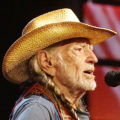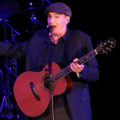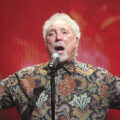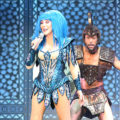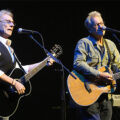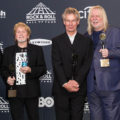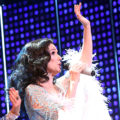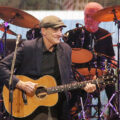Yusuf/Cat Stevens shares, reflects and inspires on a breathtaking trip through “A Cat’s Attic”
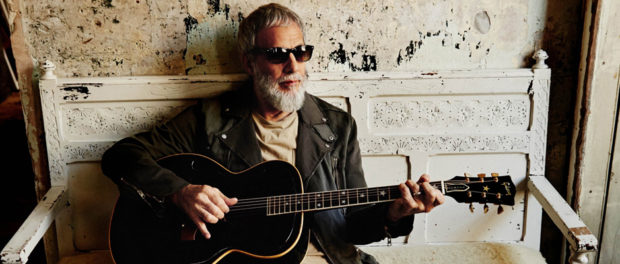 Photo provided by Danny Clinch
Photo provided by Danny Clinch
Outside of speckling a few spot concert dates every once in a while, it’s extremely uncommon for Yusuf/Cat Stevens to embark on a tour for any substantial amount of time. In fact, up until 2006’s comeback collection “An Other Cup,” his first widely released collection since converting to the Muslim religion, the singer/songwriter hadn’t even touched Western pop music in 28 years.
When Yusuf/Stevens finally said goodnight following the generous journey, the scrapbook of memories didn’t just go back on the shelf, but rather reignited the life-changing spark that continues to define an entire generation.
These days, Yusuf/Stevens (whose since release two additional studio albums) is celebrating his 50th anniversary of artistry with “A Cat’s Attic,” a North American outing only spanning a dozen dates, including some cities he hasn’t visited in more than 40 years. Thankfully, area audiences haven’t had to wait nearly as long given a recent Chicago Theatre show, but considering it sold out within seconds, this second sweep through the equally ornate (and also at full capacity) Oriental Theatre gave faithful another chance to make up for lost time.
And the troubadour did exactly that and then some, opening the more than 30 track night in the pale moon light of “Where Do The Children Play?” with just a bar stool and an acoustic guitar. He may have been all gray, but looked just as lean and fit as anyone would remember him, while those unmistakable pipes and million dollar lyrics sounded essentially like they did in 1978 (though their meaning and musical resourcefulness have since transcended time).
 About halfway through the tune, the black curtain rose behind Yusuf/Stevens, revealing a Broadway-worthy set featuring the frame work of a full-scale house (complete with a smoking chimney), all the remnants of an actual attic, plus additional accompaniment from a guitarist and bassist/multi-instrumentalist. Between that striking visual reveal and his passionate delivery, the crowd leapt to their feet and would continue to spend much of the two-and-a-half retrospective hollering praise through countless standing ovations.
About halfway through the tune, the black curtain rose behind Yusuf/Stevens, revealing a Broadway-worthy set featuring the frame work of a full-scale house (complete with a smoking chimney), all the remnants of an actual attic, plus additional accompaniment from a guitarist and bassist/multi-instrumentalist. Between that striking visual reveal and his passionate delivery, the crowd leapt to their feet and would continue to spend much of the two-and-a-half retrospective hollering praise through countless standing ovations.
With his faith firmly in tact, Yusuf/Stevens was extremely humble, peaceful and personable along the entire journey, frequently venturing into stories to accompany the time capsule. He gave glimpses into the record industry, recreated a youthful bedroom scene of literally tossing a Beatles album on a phonograph, continuously called for unity, talked about his near drowning experience, and ultimately, the prayer (and subsequent wave of safety) that saved his life.
And of course, there were the songs themselves, which regardless if they were hits or treasures from a distantly buried trunk, showcased one of the richest and most articulate bodies of work in folk and pop’s entire history. From the first half, there was the frequently covered “The First Cut Is The Deepest,” the deeply reflective “Trouble,” the Eastern-inspired “Katmandu” and the moving “Miles From Nowhere” (which found the legend stopping mid-song to dig out his old guitar, much to the screams of those still in awe that this entire undertaking was actually happening).
For the second half, Yusuf/Stevens started on the piano, churning out emotive selections such as “Sad Lisa” before returning to the acoustic guitar for additional lump-in-the-throat musings (“Father And Son,” “Be What You Must”). There was also the immediately familiar “Moonshadow,” a spiritually-ripe cover of “People Get Ready” and a nod to the newer with “Roadsinger,” though a teased finale of “Peace Train” seemed plucked straight out of eternal paradise.
The chilling mood only elevated in the encore with the sing-a-longs “Wild World” and “Morning Has Broken,” though the segment also displayed some outside influences, including Sam Cooke’s soulful “Another Saturday Night” and an electric guitar-charged version of the country standard “You Are My Sunshine.” When Yusuf/Stevens finally said goodnight following the generous journey, the scrapbook of memories didn’t just go back on the shelf, but rather reignited the life-changing spark that continues to define an entire generation.
For additional information on Yusuf/Cat Stevens, visit CatStevens.com.
For a list of upcoming shows at the Oriental Theatre visit BroadwayInChicago.com.
For a list of upcoming Live Nation shows, visit LiveNation.com.

